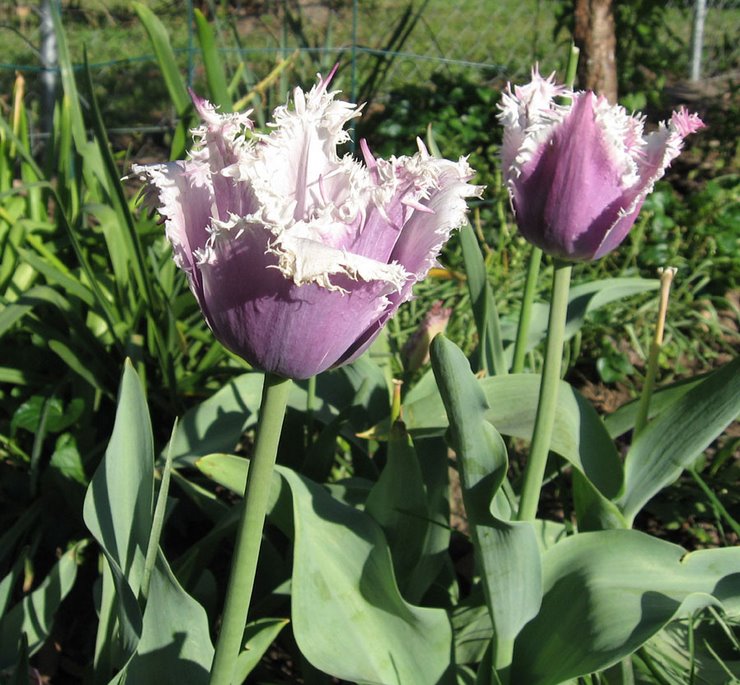It's been raining again this evening;
just light showers at this point, but the soil is already saturated,
and water is standing in the yard in places. In part, this is simply
because we've had so much rain over the last couple of weeks that
there's a flood watch in the area. But it's also because the soil in
my yard tends to be a heavy clay, that doesn't drain very well. I've observed that lower-lying areas in
my yard, water pools up after heavy rains.
Are you unsure of how your garden soil
rates on drainage? Sometime when it isn't rainy, try this test. Dig
a hole about a foot deep, and about as wide as your shovel. Fill the
hole up completely with water, and leave it to drain out completely.
The next day, go back and fill it up completely again. This time
keep an eye on it to see how long it takes for all of the water to
drain away.
If the water takes more than an hour to
soak in, then you have poor drainage. Your soil is probably clay,
which means it is made up of very fine particles that stick to each
other, and pack down hard. This kind of soil has very poor drainage
and limited aeration. Plant roots need air as well as
water. If roots have no oxygen for a long time they can suffocate.
Whether your soil is poorly drained or
drains too fast, the solution is the same—add compost, composted
manure, leaf mold or fine pine bark. Some people add sand to heavy
clay, but this can actually decrease drainage. Organic matter is
better. Ideally soil is about half solid matter and half porous areas
filled with air and water.
Earthworms will also help improve drainage
in your soil. Their tunnels give water places to drain away, and they
move nutrients and organic matter down through the soil. I think of earthworms as really slow-motion rototilling, without harming plant roots. Ants can be real pests, but their tunnels can aerate soil too.
Avoid walking on or working your soil
when it's really wet, as this compacts the soil. I have permanent
paths of stepping stones through garden beds, so I can reach areas
for maintenance without walking on the soil.

1 comment:
The soil at our place (moved here 5 years ago) was terribly compacted. Thanks to the help of a sister with more advanced knowledge of organic gardening practices, over the past 3 years of encouraging soil fertility, we are eventually going to have much improved lawn and garden areas. I'm learning to be patient.
Post a Comment